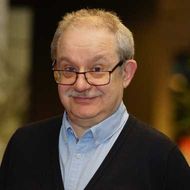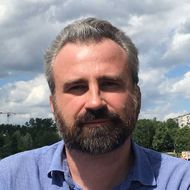- A
- A
- A
- ABC
- ABC
- ABC
- А
- А
- А
- А
- А
- HSE University
- Faculties
- Faculty of Social Sciences
- School of Sociology
- Events
- Research Seminar “Urban legacies of sports mega events: the case of FIFA World Cup and Olympics in Rio de Janeiro”
Address: 101000, Moscow,
11 Myasnitskaya Ulitsa.
Phone: 8 (495) 772-95-90 *12349
Email: izangieva@hse.ru
The School of Sociology aims to train future social analysts in sociological reasoning to address the needs of social life, business, politics, public administration, and the media. To this end, the school works to develop a close link between education and research, as well as application-oriented education, internationalization of research and education, and close networks with major employers on the labour market.
In press
Abashkin V., Abdrakhmanova G., Vishnevskiy K. et al.
M.: HSE, 2025.
In press
Journal of Adolescence. 2025.
Aristova N., Chadeev V., Iakimova O.
In bk.: 2024 17th International Conference on Management of Large-Scale System Development (MLSD). IEEE, 2024. P. 1-4.
OSF, 2024

Research Seminar “Urban legacies of sports mega events: the case of FIFA World Cup and Olympics in Rio de Janeiro”

The School of Sociology and Department of Public Policy invite you to the lecture of Einar Braathen,
Research Professor (Norwegian Institute for Urban and Regional Research, Oslo and Akershus University College of Applied Sciences)
“Urban legacies of sports mega events: the case of FIFA World Cup and Olympics in Rio de Janeiro”

Time: Monday 15 January, 18:10.
Brazil and Russia celebrate the second decade of the 21st century by hosting the world’s two biggest sporting events, the FIFA World Cup for men and the Olympic Games, only a few years apart. Like the other members of the BRICS family, the two countries share an optimistic view of mega events and mega projects: with a proper contribution from the state and effective planning of private-public collaboration, the hosting country and cities can reap large and long-term economic, social and cultural benefits.
This talk will address the planning process and the impacts of the sports mega events in Brazil and Rio de Janeiro in particular, which hosted the World Cup final in 2014 and the Summer Olympic Games in 2016. The planning for mega events in Rio de Janeiro started in a context of urban crisis in the 1990s and early 2000s, and were held amidst a quite different political and economic crisis in the following decade. These contexts will be elaborated upon to understand how they shaped the mega events themselves.
The impacts of the mega sports events in Rio will in this paper be looked upon through the lens of ‘legacy’, a discourse supported by the IOC (International Olympic Committee) regarding long-term benefits for the host city and its citizens. The impacts of the main elements of the ‘legacy plan’ – transport infrastructure, sports infrastructure, environment, urban upgrading and housing – will be assessed. My argument is that impacts of plans are largely influenced by the way the plans are implemented (the issue of participation), on the one hand, and by their contexts (unpredictable and shifting), on the other.
- About
- About
- Key Figures & Facts
- Sustainability at HSE University
- Faculties & Departments
- International Partnerships
- Faculty & Staff
- HSE Buildings
- Public Enquiries
- Studies
- Admissions
- Programme Catalogue
- Undergraduate
- Graduate
- Exchange Programmes
- Summer Schools
- Semester in Moscow
- Business Internship
-
https://elearning.hse.ru/en/mooc/
Massive Open Online Courses
-
https://www.hse.ru/en/visual/
HSE Site for the Visually Impaired
-
http://5top100.com/
Russian Academic Excellence Project 5-100
- © HSE University 1993–2025 Contacts Copyright Privacy Policy Site Map
- Edit



